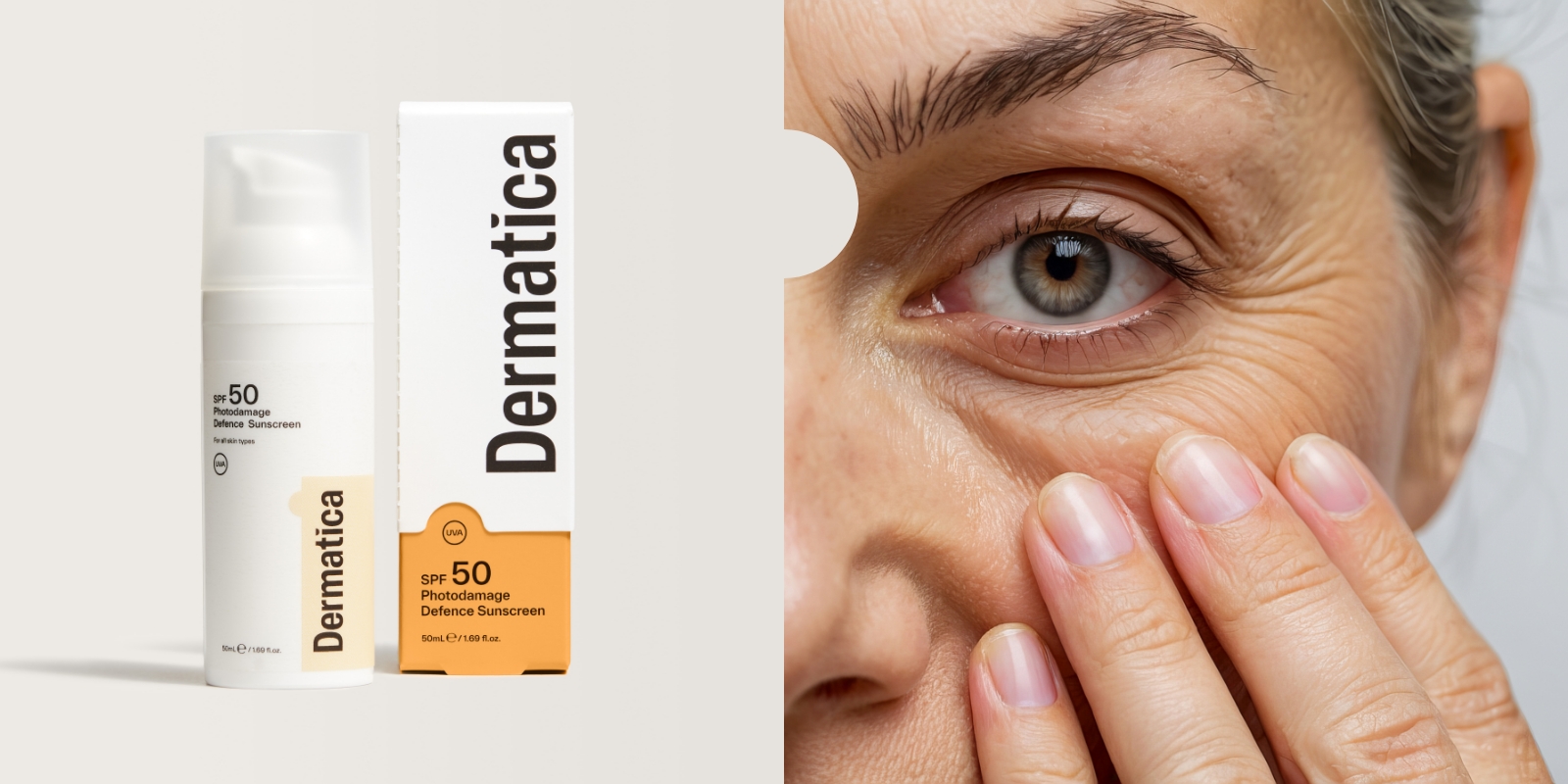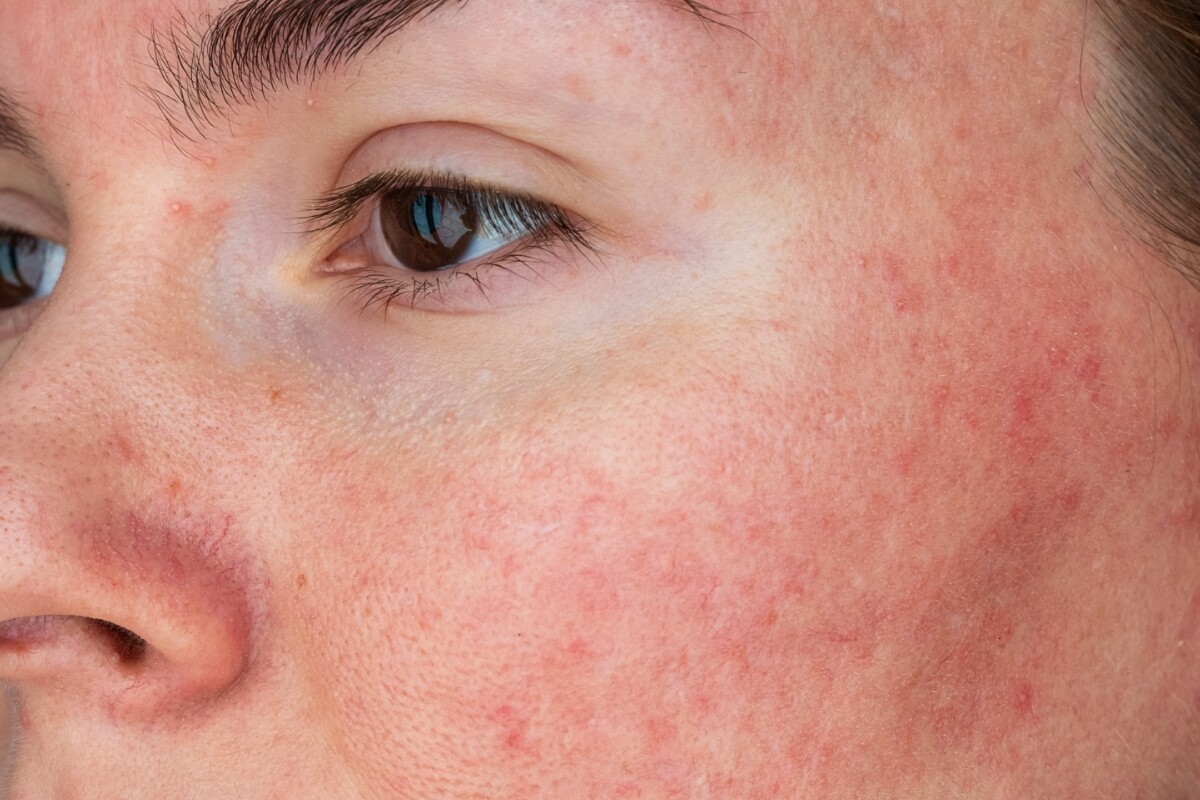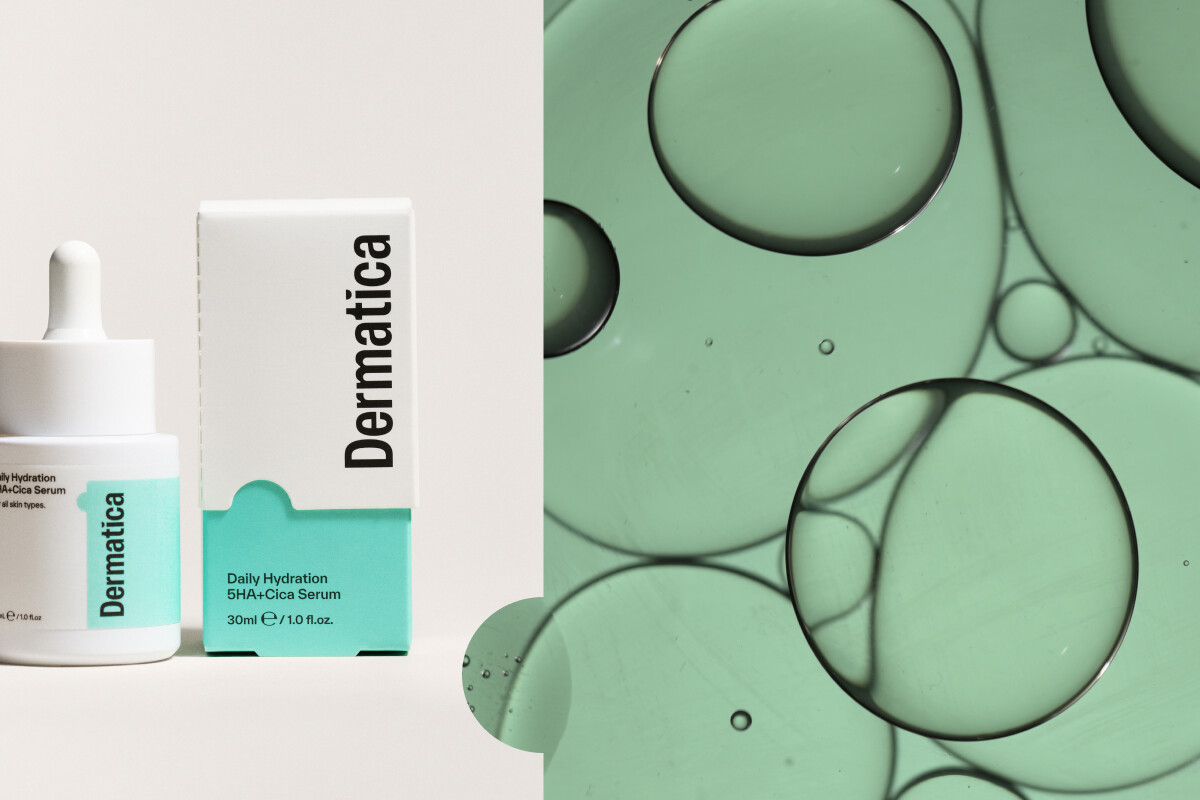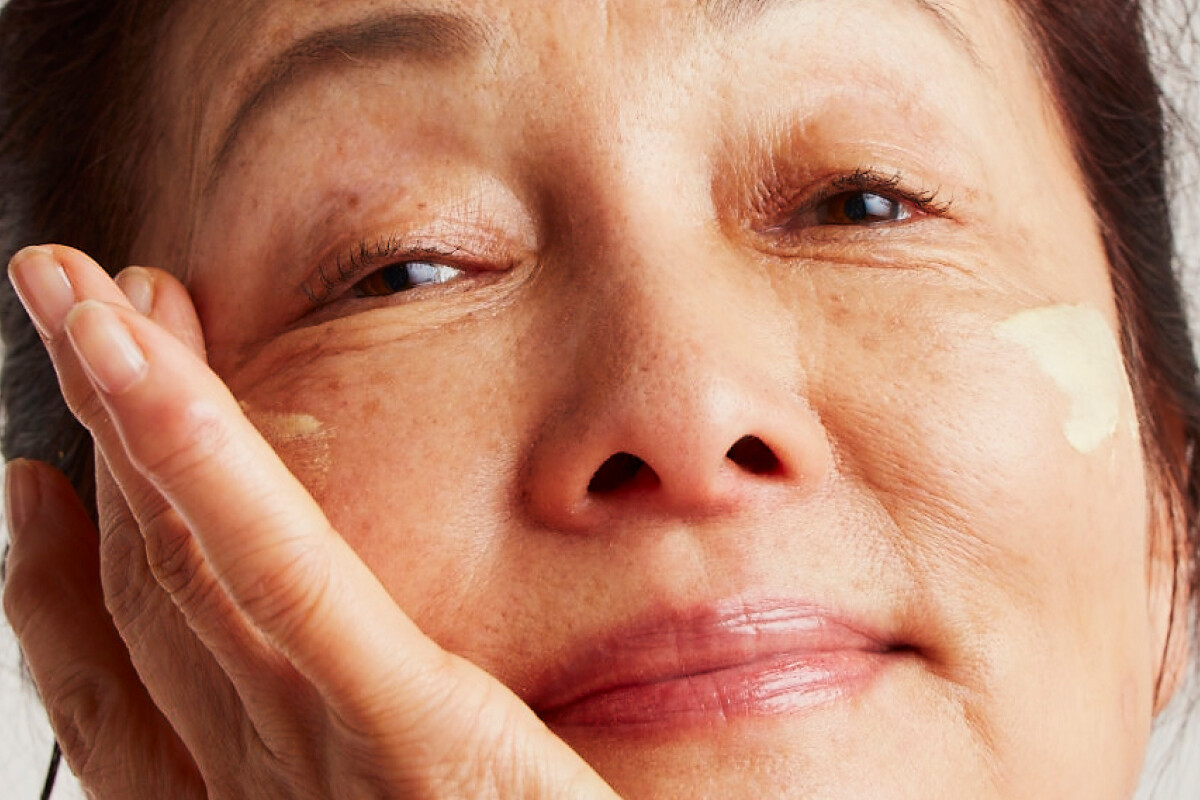The internet is buzzing about Ozempic face. This phenomenon happens when people lose a lot of weight relatively quickly, and their face suddenly appears much thinner, making effects like wrinkles and sagging much more prominent. This can make people look older. (1)
In this blog, we’ll explain what’s going on here and how this works.
What Is Ozempic?
There’s a good chance you’ve heard of Ozempic at this point. It’s been a hot topic all over the internet. Ozempic is a weekly injection that was originally developed as a diabetes drug to improve insulin sensitivity in people with Type 2 Diabetes. Another effect is that it suppresses appetite, and the downstream result of this is weight loss.
Ozempic is a brand name for a medication named semaglutide. Semaglutide acts like a hormone that is naturally present in everyone’s body called GLP-1. This hormone makes its way to your brain and helps regulate appetite.
So, people taking semaglutide will feel full after eating less food, and ultimately – they should lose weight. The FDA approved Ozempic in 2017 for the treatment of Type 2 Diabetes.
Ozempic isn’t the only medication in this class. Four years later, the FDA approved a higher dose version meant specifically for people with obesity. Medications like Wegovy have been approved for people with a BMI of 27 or above who have one or more weight-related ailments, or for people with a BMI of 30 or above. (2)
Ozempic for Obesity and Weight Loss
Many people struggle with obesity and find it difficult to lose weight or keep excess weight off. Unfortunately, society often views obesity as a problem with willpower or a moral failing, but there are so many more factors at play than meets the eye. Many people struggle with losing weight despite making changes to their lifestyle and diet. Genetic factors also play a role, and there are often physiological differences between people that make it much harder for some people to lose weight than others. (5)
It’s important to remember that weight loss injections aren’t an all-inclusive quick fix. Patients still need to eat well and exercise regularly. They can help some people lose around 15% of their body weight. However, these medications are also a serious long-term commitment. Once you stop the medication, and the drug leaves your system, your appetite will return. Studies suggest that people often regain two-thirds of the weight they lost after one year of stopping the medication. (6)
Does Ozempic Change Your Face?
This is a myth, and the internet is getting a lot of the details wrong. There’s nothing in Ozempic that makes skin appear different or older. Weight loss changes your face, and how much or little it does this can’t be controlled.
This ageing effect on the skin can happen when anyone loses a significant amount of weight, especially if it’s done in a short space of time. It has nothing to do with the drug itself. This is a change that can be seen with any type of significant weight loss, like when someone goes through bariatric surgery, for example. It’s not specific to weight loss injections.
Whether you choose to lose weight through medications, surgical procedures, or traditional methods, it’s your decision. (1)
How to Reduce the Ageing Effects of Weight Loss on Your Face
As you can’t choose which areas of your body you lose fat from during weight loss, you may lose it in areas that you may not necessarily want to – such as your face. Rapid weight loss can cause loose skin, deeper, more prominent wrinkles and an overall more aged appearance.
A major, natural shift that also happens as we get older is the shrinkage and redistribution of the fat pads in our face. When someone loses a lot of body fat, especially quickly, these fat pads decrease in volume as well. You’ll often notice loss of fat most in the midface, where cheeks may develop a thinner or more hollow appearance. (7)
No matter what method the person uses to lose significant amounts of weight, the effects can show up as sagging loose skin or excess skin, more prominent jowls, deeper wrinkles, and an overall more sunken appearance. These effects are not specific to semaglutide weight loss injections, such as Ozempic.
How Facial Volume And Fat In Your Face Keep Your Skin Looking Young
Ageing is a natural and inevitable process that everyone goes through, and visible signs of ageing you might recognise are wrinkles, sagging, and hollowed features.
Structural rearrangements also happen as we age. When we’re young, fat in our faces is evenly distributed, with some pockets here and there that plump up the forehead, temples, cheeks, and areas around the eyes and mouth.
With age, that fat loses volume, clumps up, and shifts downwards. Features that used to be round may sink, and skin that was smooth and tight gets loose and sags. Meanwhile, other parts of the face gain fat, particularly the lower half. (7)
Why Collagen And Elastin Are Essential For Young-Looking Skin
Collagen and elastin are essential proteins found in the skin that provide strength, elasticity and structure. As we age, our bodies produce less of these proteins, and existing levels start to deplete. This degradation is due to a combination of intrinsic (genetic) and extrinsic (environmental) factors, such as sun exposure, pollution, and lifestyle choices.
Breakdown of collagen and elastin leads to less skin elasticity and firmness. Your skin becomes more prone to creases and folds, which ultimately results in wrinkles forming. (8)
Preventative Measures and Treatments
– Slow Weight Loss: One of the best ways to combat the rapid loss of facial volume is to lose weight slowly. This allows the skin more time to adjust to the changes in body composition.
– Retinoids: Long term use of retinoids like tretinoin can boost collagen production and enhance skin plumpness. They help prevent the breakdown of collagen and elastin, and boost your skin’s collagen production, helping you maintain skin elasticity and firmness for longer.
– Daily Sunscreen: UV exposure is the leading cause of loss of skin elasticity, wrinkles and skin thinning. To prevent this, wear a broad-spectrum sunscreen with at least SPF30+ every day.
– Collagen Supplements: Taking collagen supplements, such as marine collagen, may help combat collagen breakdown. Some people find it helps improve skin elasticity, hydration, and overall appearance by providing the body with the necessary building blocks to produce collagen. (9)
– Healthy Lifestyle: A balanced diet, drinking 2 litres of water daily and regular exercise can support skin health and minimise the visible effects of sudden weight loss.
– Dermal Fillers: For those who have already experienced significant facial volume loss, dermal fillers can help restore fullness to the face.
The Role Of Skincare
A daily, science-backed skincare routine protects your skin from dehydration and oxidative stress. Keeping your skin barrier healthy can increase skin regeneration, elasticity and overall smoothness. (10) Using a personalised retinoid formula can also help boost collagen production in your skin, maintaining its plumpness for longer.
Ageing is a natural, inevitable process, but we always recommend using effective skincare to keep your skin healthy. If your goal is also to slow down skin ageing that’s associated with significant weight loss, keeping your skin health at optimal levels can also help you maintain younger-looking skin for longer.
To find out what formula might be right for your skin to achieve your goals, visit our website.
References
1. Humphrey CD, Lawrence AC. Implications of Ozempic and Other Semaglutide Medications for Facial Plastic Surgeons. Facial plastic surgery: FPS [Internet]. 2023 Aug 29; Available from: https://pubmed.ncbi.nlm.nih.gov/37541662/
2. Kommu S, Whitfield P. Semaglutide [Internet]. PubMed. Treasure Island (FL): StatPearls Publishing; 2024. Available from: https://www.ncbi.nlm.nih.gov/books/NBK603723/
3. Chiappini S, Vickers-Smith R, Harris DR, Pelletier G, Corkery J, Guirguis A, et al. Is There a Risk for Semaglutide Misuse? Focus on the Food and Drug Administration’s FDA Adverse Events Reporting System (FAERS) Pharmacovigilance Dataset. Pharmaceuticals [Internet]. 2023 Jul 11;16(7):994–4. Available from: https://www.ncbi.nlm.nih.gov/pmc/articles/PMC10384093/
4. Nast C. What You Need to Know About Ozempic: The Diabetes Drug Fuelling Hollywood’s Harmful Weight-Loss Obsession [Internet]. British Vogue. 2023. Available from: https://www.vogue.co.uk/beauty/article/what-is-ozempic
5. Panuganti KK, Nguyen M, Kshirsagar RK. Obesity [Internet]. Nih.gov. StatPearls Publishing; 2021. Available from: https://www.ncbi.nlm.nih.gov/books/NBK459357/
6. Wilding JPH, Batterham RL, Davies M, Van Gaal LF, Kandler K, Konakli K, et al. Weight regain and cardiometabolic effects after withdrawal of semaglutide: The STEP 1 trial extension. Diabetes, Obesity and Metabolism [Internet]. 2022 May 19;24(8):1553–64. Available from: https://pubmed.ncbi.nlm.nih.gov/35441470/
7. Wan D, Amirlak B, Rohrich R, Davis K. The Clinical Importance of the Fat Compartments in Midfacial Aging. Plastic and Reconstructive Surgery Global Open [Internet]. 2014 Jan 6;1(9). Available from: https://www.ncbi.nlm.nih.gov/pmc/articles/PMC4174112/
8. Pu SY, Huang YL, Pu CM, Kang YN, Hoang KD, Chen KH, et al. Effects of Oral Collagen for Skin Anti-Aging: A Systematic Review and Meta-Analysis. Nutrients [Internet]. 2023 Jan 1;15(9):2080. Available from: https://www.mdpi.com/2072-6643/15/9/2080
9. Pu SY, Huang YL, Pu CM, Kang YN, Hoang KD, Chen KH, et al. Effects of Oral Collagen for Skin Anti-Aging: A Systematic Review and Meta-Analysis. Nutrients [Internet]. 2023 Jan 1;15(9):2080. Available from: https://www.mdpi.com/2072-6643/15/9/2080
10. Ganceviciene R, Liakou AI, Theodoridis A, Makrantonaki E, Zouboulis CC. Skin anti-aging strategies. Dermato-Endocrinology [Internet]. 2012 Jul 1;4(3):308–19. Available from: https://www.ncbi.nlm.nih.gov/pmc/articles/PMC3583892/
Related Posts
October 30, 2025
0 Comments11 Minutes





